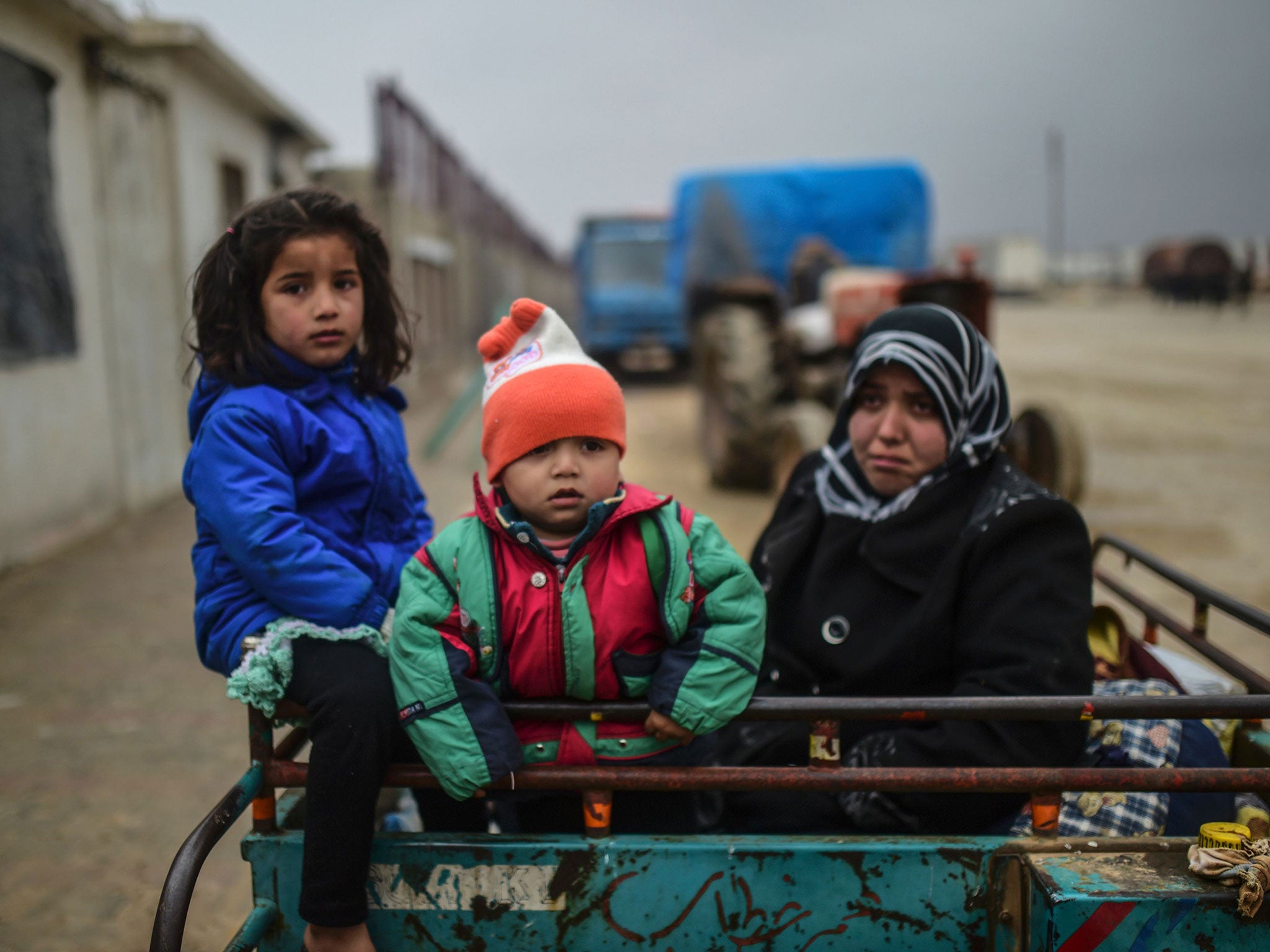Refugee crisis: Turkey 'can take no more' as Syrian refugees fleeing Russian-backed offensive build up on border
Angela Merkel to visit - but most Germans think her government has 'lost control' of the refugee situation

Turkey has warned that it has exhausted its “capacity to absorb” refugees amid mounting pressure to accept a wave of Syrians driven from their homes by a major Russian-backed offensive.
Angela Merkel, the German Chancellor, is due to travel to Turkey on Monday in an effort to gain Ankara’s help in slowing the tide of refugees entering the European Union. On the eve of her visit, the Turkish Deputy Prime Minister, Numan Kurtulmus, said that his nation was now hosting three million refugees, 2.5 million of them Syrian. He said that, though it had reached its limits, Turkey would ultimately take more people because “in the end, these people have nowhere else to go”.
However, as darkness fell on Sunday Turkey had yet to open its Bab al-Salam border crossing to northern Aleppo province, where the United Nations estimates that 35,000 people are “newly displaced”. Though the UN has said that only 2,500 to 3,000 people remained at the border crossing itself, tens of thousands more were said to have sought shelter in nearby towns and camps that were bursting at the seams even before the latest influx.
Dr Osama Abo el-Ezz, a Syrian doctor who travelled to Turkey from Aleppo on Saturday night via a different crossing, told The Independent he had encountered many families who had taken refuge in the rural, rebel-held areas to the west of the city. “They are hungry, they are sleeping on the ground,” he said. “They are waiting for some kind of help. Every day there are about 10 to 20 people killed in Aleppo city by the Russian planes and by bombing by the regime,” he said. “The situation in Aleppo is getting worse and worse.”
With the help of Russia, Iran and Hezbollah, the Syrian government has made a series of gains in Aleppo province. Last week it severed the sole main rebel supply line from Turkey. Heavy fighting has also been reported around the village of Ratyan as part of a campaign to slice rebel-held territory in two.
Those living in the eastern part of Aleppo, an opposition stronghold since 2012, fear that they are on the verge of being totally encircled and placed under siege.
Dr Abo el-Ezz warned of an impending crisis. “The hospitals have been storing up some fuel and some medications – but not enough,” he said. “The people have no way to store anything because they are poor. Aid organisations have been storing food and water but I don’t think it is enough for all the people in the city.”
He said that there were already shortages of food, medicine and clean water as well as near-constant bombardment.
Mr Kurtulmus estimated that “in the worst-case scenario” as many as one million more refugees could flee the Syrian city of Aleppo and surrounding areas. That would present a huge challenge both for Turkey and for Europe.
Ms Merkel’s visit comes amid reports that 70,000 migrants have entered the EU from Turkey via Greece since the start of the year, despite a €3bn (£2.3bn) deal between Ankara and Brussels aimed at stemming the flow of people.
She is facing growing domestic pressure over her “open-door” policy that enabled more than one million refugees to enter the country in 2015. A recent German television poll showed that some 80 per cent of voters now think that her government has “lost control” of the situation.
During meetings with politicians and officials, she is expected to urge Turkey to police its maritime border with Greece more effectively and to halt migrant trafficking. But her visit is complicated by the latest wave of people displaced in northern Aleppo.
Join our commenting forum
Join thought-provoking conversations, follow other Independent readers and see their replies
0Comments